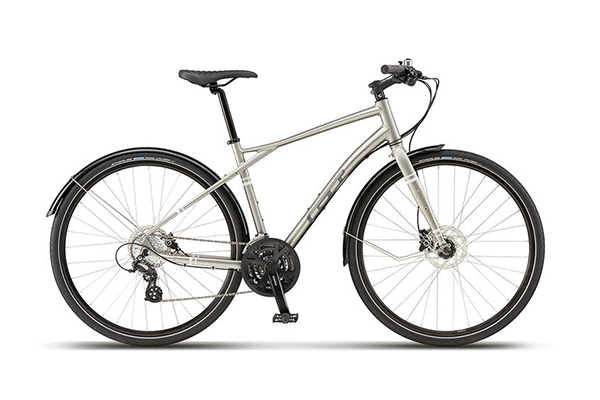Running a 5k race is an exhilarating and challenging experience for runners of all levels. Whether you’re a seasoned athlete or a beginner looking to set a personal record, one question that often arises is, “Is a 20-minute 5k time good?” In this blog post, we will delve into the topic, exploring the subjective nature of defining a “good” time and considering various perspectives within the running community. Let’s lace up our shoes and explore the world of 5k racing.
Understanding the 5k Race:
To begin our discussion, let’s establish a common understanding of what a 5k race entails. A 5k race is a distance of approximately 3.1 miles or 5 kilometers. It is a popular race distance due to its manageable length, making it accessible to runners of varying abilities. The popularity and significance of 5k races have grown significantly over the years, attracting a wide range of participants, from recreational runners to elite athletes. People often choose to participate in 5k races as a way to challenge themselves, improve their fitness, and support charitable causes.
What Constitutes a “Good” 5k Time?
Determining what qualifies as a “good” 5k time is subjective and depends on several factors. One must consider personal goals, improvements, age, fitness level, and competitiveness. Your own progress and achievements should be the primary benchmark when evaluating your race time. If you’ve consistently been working towards shaving off seconds or minutes from your previous races, a 20-minute 5k time can be a significant accomplishment. Remember, the journey is as important as the destination.
Benchmarking 5k Times:
To gain a better perspective, let’s explore some benchmark categories that runners often use to assess their performance. These categories generally include beginner, intermediate, and advanced levels. Within these categories, average times can be used as reference points. For example, a beginner may aim for a sub-30 minute 5k, while an intermediate runner might target a sub-25 minute finish. Within the advanced category, times typically range from sub-20 minutes to sub-18 minutes. As such, a 20-minute 5k time would fall within the intermediate to advanced range, signifying a notable accomplishment.
Perspectives on a 20-Minute 5k Time:
To gain a more comprehensive understanding, let’s consider two different perspectives: that of elite or competitive runners and recreational runners.
Perspective 1: Elite or Competitive Runners
For elite runners, a 20-minute 5k time may not be considered exceptional. These athletes push the boundaries of human capability, often completing 5k races in times well under 20 minutes. However, it is crucial to recognize that elite runners dedicate their lives to training and have access to resources and support systems that recreational runners may not possess. Comparing your time to elite runners should be done with admiration and inspiration rather than as a means of self-deprecation.
Perspective 2: Recreational Runners
For recreational runners, a 20-minute 5k time can be seen as a significant achievement. It demonstrates a commitment to training, improvement, and personal growth. Many recreational runners strive to break the 20-minute barrier and consider it a milestone in their running journey. It is essential to celebrate personal accomplishments and acknowledge that everyone’s journey is unique. Remember, running is about enjoying the process and challenging yourself, regardless of the time on the clock.
Celebrating Personal Achievements:
Rather than fixating solely on the numerical value of your 5k time, it is vital to embrace your personal progress and achievements. Running is a journey of self discovery and growth. Whether you’ve achieved a 20-minute 5k time or are still working towards it, take a moment to reflect on how far you’ve come. Celebrate the effort, dedication, and discipline you’ve put into your training. Each step forward, regardless of the time it takes, is a testament to your perseverance.
Setting realistic goals is also essential in celebrating personal achievements. While a 20-minute 5k time may be a milestone for some, it may not be realistic or meaningful for others. Focus on improving your own performance, challenging yourself to be better than you were yesterday, and setting goals that align with your capabilities and aspirations. This way, you can appreciate the progress you make along your running journey.
In the pursuit of personal growth, it’s essential to enjoy the running experience beyond just chasing a specific time. Running is a wonderful opportunity to connect with nature, relieve stress, and improve overall well-being. Embrace the joy of lacing up your shoes, feeling the wind against your face, and the rhythm of your footsteps. Engage with the running community, join group runs, and participate in races to connect with fellow runners who share your passion.
Tips for Improving 5k Performance:
If you’re looking to enhance your 5k performance, there are several training strategies you can incorporate into your routine:
Interval Training: Integrate high-intensity intervals into your training sessions. Alternate between periods of faster running and recovery periods to improve speed and endurance.
Tempo Runs: Include tempo runs in your training regimen, which involve maintaining a comfortably hard pace for an extended period. This helps improve your lactate threshold and running efficiency.
Strength Exercises: Incorporate strength training exercises to build overall body strength. This can enhance your running form, power, and resistance to injuries.
Consistent Training: Consistency is key in improving performance. Create a training schedule that includes regular runs and gradually increase your mileage and intensity over time.
Seek Guidance: Consider seeking advice from experienced runners or coaches who can provide personalized training plans and insights to help you reach your goals.
Remember, progress takes time and patience. Be kind to yourself throughout the process, celebrate small victories, and learn from setbacks. Focus on the enjoyment of running, the sense of accomplishment, and the positive impact it has on your overall well-being.
Related:
Is Mountain Biking Good For Weight Loss
FAQs:
Is a 20-minute 5k time considered fast?
A 20-minute 5k time is generally considered fast and falls within the intermediate to advanced range for most runners. It demonstrates a good level of speed, endurance, and commitment to training.
Can a beginner achieve a 20-minute 5k time?
While it may be challenging for a beginner runner to achieve a 20-minute 5k time initially, with consistent training, dedication, and gradual improvement, it is possible. It’s important to set realistic goals and focus on progress rather than comparing oneself to others.
How can I improve my 5k time and aim for a sub-20-minute finish?
To improve your 5k time and work towards a sub-20-minute finish, consider incorporating speed workouts such as intervals and tempo runs into your training routine. Additionally, strength training and maintaining a consistent training schedule can contribute to better performance.
What are some common training mistakes that may hinder achieving a 20-minute 5k time?
Some common training mistakes that can hinder progress include overtraining, neglecting rest and recovery, lack of variety in workouts, and inadequate attention to nutrition and hydration. It’s important to listen to your body, follow a balanced training plan, and seek guidance from experienced runners or coaches if needed.
How does age affect a 20-minute 5k time?
Age can play a role in determining what is considered a good 5k time. Generally, as runners get older, maintaining or achieving a 20-minute 5k time may become more challenging due to natural physiological changes. However, age is just one factor, and runners of all ages can still strive for personal improvement and celebrate their own achievements.
Can external factors such as course terrain and weather impact a 20-minute 5k time?
Yes, external factors such as course terrain (e.g., hilly vs. flat) and weather conditions (e.g., wind, heat, humidity) can affect race times. It’s important to consider these factors when evaluating your performance and adjusting expectations accordingly.
Conclusion:
In the world of running, the question of whether a 20-minute 5k time is good is subjective and depends on individual circumstances. The notion of a “good” time varies among elite runners, recreational runners, and personal goals. What matters most is your own progress, growth, and the fulfillment you find in the running journey.
Embrace your achievements, no matter the time on the clock. Set realistic goals, celebrate personal milestones, and enjoy the process of running. Remember, running is not solely about the numbers—it’s about pushing your limits, embracing challenges, and discovering the best version of yourself.
So, lace up your shoes, step out onto the road or trail, and relish every moment of your 5k journey. Whether it’s a 20-minute finish or beyond, every stride counts towards becoming a stronger, more resilient runner. Keep running, keep improving, and keep enjoying the wonderful sport that is 5k racing.




